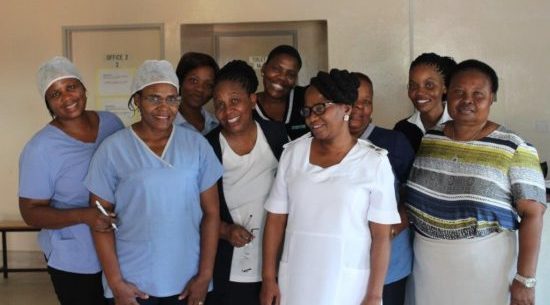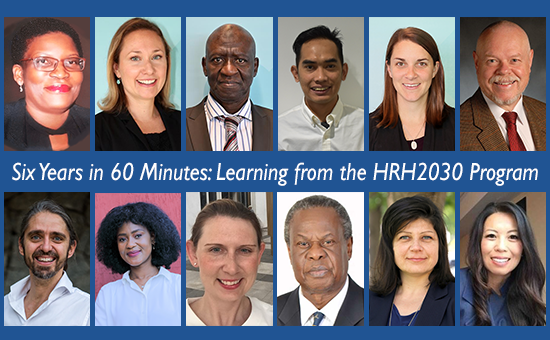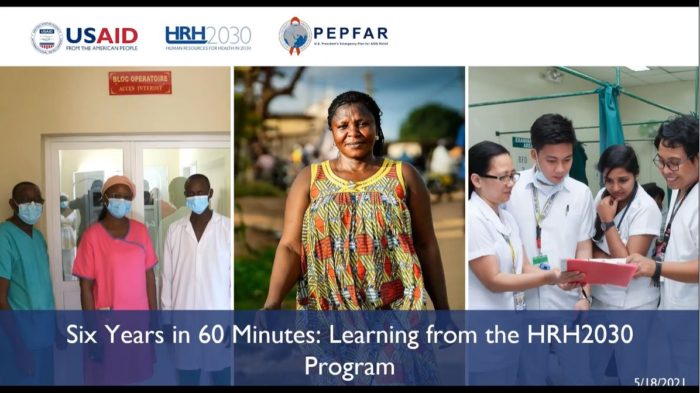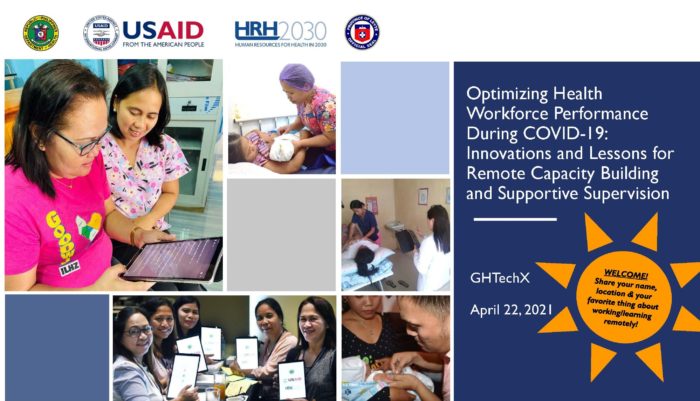Country Snapshot: Botswana

Botswana is determined to achieve HIV/AIDS epidemic control and health for all by 2023, meeting both national and UNAIDS targets for scaled-up HIV prevention and care. Sustaining these gains will require system-level adaptations to how HIV care and related health services are delivered and provided to the people who need them. While most people living with HIV are on treatment, the country’s Ministry of Health and Wellness, PEPFAR, and other stakeholders recognize the high cost and burden associated with existing models of HIV care. With growing numbers of HIV patients under Botswana’s ‘Treat All’ strategy, as well as rising numbers of chronic non-communicable diseases, many health facilities suffer from congestion and health workers face high patient loads which affect quality of care and responsiveness to individual patient needs.
HRH2030 in Botswana
HRH2030, with support from USAID through PEPFAR, works with the Ministry of Health and Wellness through their District Health Management Teams (DHMTs) to adapt existing models of care to develop and implement differentiated service delivery models of care to ‘deliver differently,’ closing critical health systems gaps and strengthening patient-centered care.
In Botswana, HRH2030 is partnering with the government to support the institutionalization of:
- Client-centered integrated HIV primary care service provision at the community level through technical assistance for differentiated service delivery models of care
- Relevant and aligned policy frameworks for HRH with integrated service delivery in communities
- Low-cost community models of differentiated care through an inclusive process that can inform long-term policy and sustainable health system transformation
The application of practical improvement approaches across service providers to continuously optimize and sustain achievements in epidemic control and broader health outcomes






 Botswana
Botswana

